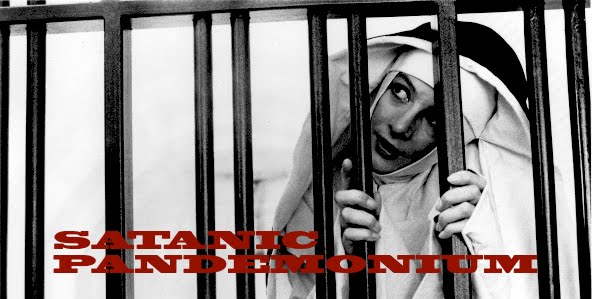Carol Reed, 1947
Starring: James Mason, Robert Newton, Cyril Cusack, Kathleen Ryan
Johnny, the leader of a resistance group in Ireland, has escaped from prison and has been hiding out at the home of Kathleen and her grandmother. Kathleen is in love with him and tolerates the group meeting there. They plan a heist on a local mill to raise money for their group, which Johnny reluctantly agrees to take part in. Everything goes wrong and Johnny is shot in the arm and falls out of the getaway car. He is left to hide on his own in the city, while slowly bleeding to death. The police, Johnny’s gang, and Kathleen each begin a desperate for search for him as the night grows colder and it begins to snow.
Based on F.L. Green's novel Odd Man Out (1945), this is one of Carol Reed’s finest films, though it is somewhat underrated because it has been more difficult to see than this famous film, The Third Man. Odd Man Out would actually be a fitting double-feature with The Third Man. Though they are very different films, both are set in war-torn cities where the police search for a criminal who is fleeing because of a single crime gone wrong. Both criminals — Harry Lime of The Third Man and Johnny from Odd Man Out — are immoral. While Harry’s crime is arguably worse, Johnny is a gang leader having doubts after a prison sentence. Both are charismatic anti-heroes, two of Reed’s finest characters.
Odd Man Out was also something of a dry run for the famous, German expressionist-influenced cinematography of The Third Man. Odd Man Out was shot by Robert Krasker and has some truly beautiful scenes of the city at night. Roger Furse and Ralph Binton's production design is excellent and was clearly influenced by French poetic realist films like Pépé le Moko (1937) and Port of Shadows (1938). There is also a sense of Greek tragedy and Catholic martyrdom to Johnny’s character, whose irrevocable doomed is clear from the start of the film. This is just as much film noir as religious tragedy, where Johnny becomes a sort of symbolic sacrifice. He wanders through the city, bleeding out, and has encounters with a variety of strange people — giving the narrative a vignette-like feel — from housewives and artists, to bums and barmen. He eventually moves so close to death that he begins hallucinating and recites parts of Corinthians just before his death: “If I have the gift of prophecy and can fathom all mysteries and all knowledge, and if I have a faith that can move mountains, but do not have love, I am nothing.”
James Mason gives an incredible performance, certainly one of his best, but Johnny isn’t actually given the bulk of screen time. The equally sound supporting cast was from Dublin’s well-known Abbey Theatre, including actors like Cyril Cusack (Harold and Maude), Robert Beatty (2001: A Space Odyssey), and Dan O’Herlihy (Halloween III: Season of the Witch). Robert Newton (Oliver Twist) made a memorable cameo as a drunken artist trying to paint death, with the dashing first Doctor Who, William Hartnell, appears as a frustrated bartender not sure whether he should throw Johnny out on the street or give him solace. Kathleen Ryan (Give Us This Day) is here in her first feature film as Johnny’s love. And last, but certainly not least, the Abbey Theatre’s founder, W.G. Fay, appears as the kind Father Tom.
Odd Man Out comes highly recommended and is a noir-crime masterpiece. Reed mostly succeeds in being apolitical and not taking with or being specifically against the IRA, which Johnny’s organization is clearly meant to represent. There are many wonderful surreal moments, which increase as Johnny moves closer to death on his urban, yet mythic journey. The sense of doom and loss is heightened by a wonderful score from William Alwyn, which I would like to own separately. Odd Man Out is currently only available as a region B Blu-ray, though Criterion are allegedly giving it their fantastic treatment sometime in 2015.


No comments:
Post a Comment